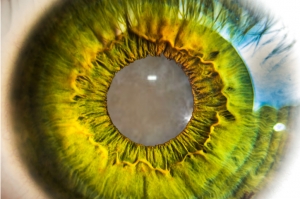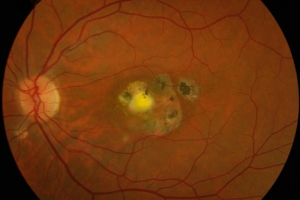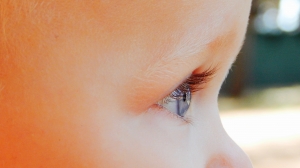Smoking and Your Vision
The dangers of smoking to your general health is well known and widely accepted, but many do not realise the effects smoking can have on your eyes and vision. This post isn’t here to cover the general health effects, but to look closer at what smoking can do to your eyes and how it can cause you to go blind – with smoking related blindness more common than you may think.

Smoking - your sight's biggest enemy
Dry Eyes
Dry eye is where the eye is not lubricated as much as it should be – through lack of tears or through factors that can dry the surface of the eyes. Those with dry eye usually feel that their eyes are irritated and gritty, not to mention have the appearance of redness with the occasional report of blurry vision. Tobacco smoke is a well-known eye irritant and can exacerbate dry eye. This is both to the smoker and anybody nearby (so be considerate!). It is thought that smokers are twice as likely to experience dry eye than non-smokers.

Smoking causes and exacerbates dry eye symptoms
Cataracts
A cataract is the clouding of the eye’s natural lens and is the leading cause of blindness in the world. Most people will develop a cataract at some point in their life, but those who smoke will accelerate the processes associated with cataract formation and thus suffer from cataracts in approximately half the time it would take a non-smoker. The more that someone smokes, the faster they will likely to develop a cataract.

Cataracts develop twice as fast in smokers than non-smokers
Macular Degeneration
Age-Related Macular Degeneration (AMD/ARMD) affects the central point of the retina and in turn, the central point if your vision. This central point in your vision is critical for fine detailed tasks such as reading, recognising faces and even driving. In a lot of cases, this loss of vision is permanent! Multiple studies have linked smoking to an increased chance of developing macular degeneration, with the figure showing between 3 and 5.5 times more likely to develop it if you smoke.

AMD destroys your central vision, making faces and words hard to see
Many people with macular degeneration are not able to drive – would you be happy to give up your driving licence in order to keep smoking? It is not all bad news though, as this risk factor is controllable – meaning you can cut your chance of developing macular degeneration if you stop smoking, even if you have smoked for years.
Uveitis
Uveitis is an inflammation of the eye’s middle layer. This is a serious ocular disease that can be very painful and result in vision loss. Uveitis damages vital structures in the eye (including the iris, choroid and retina) leading to vision loss. Multiple studies have shown that the chances of developing uveitis as a smoker is double that of a non-smoker.

Smoking doubles your risk of developing uveitis - be warned!
Diabetic Retinopathy
The damage that diabetes does to your body is widespread, but a great deal of damage occurs to the retina. The changes to the retinal blood vessels due to diabetes can cause vision loss, through haemorrhaging across the retina, scarring and even lead to total vision loss through a retinal detachment. Studies have shown that smokers have twice the risk of developing diabetes than non-smokers. Moreover, a link has been found between the progression of diabetic retinopathy in smokers, with smokers more likely to have a complication due to diabetic retinopathy than non-smokers.

How the world may appear with diabetic retinopathy
Childhood Eye Disease
Smoking involves taking in harmful toxins as you breathe. If you are pregnant, the toxins pass on to the developing foetus via the placenta and can harm the unborn child. This can cause them to have birth defects and other general health complaints. The unborn child’s eyes may also be affected, causing strabismus (an eye turn), underdevelopment of the optic nerve and, due to the likelihood of a premature birth through smoking, retinopathy of prematurity.

Smoking during pregnancy can cause damage to a child's eyes
Read Enough to Stop?
The ability to stop smoking ultimately lies in your hands, but I understand that it is not an easy journey to make. Quitting at any time will lower your risks of developing many sight-threatening conditions, as well as help you lead a healthier lifestyle. If any of these points have raised concerns about your health and vision, then be sure to mention it at your next doctor or optometrist's appointment, where they will able to signpost or arrange a plan to help you stop.
More about the Government's plans to help you stop smoking can be found here:
https://www.gov.uk/government/publications/health-matters-smoking-and-quitting-in-england/smoking-and-quitting-in-england
Would you like to feature this blog post on your website? If so, please contact me for licensing - I can be contacted on this page

Make A Comment
Comments (0)